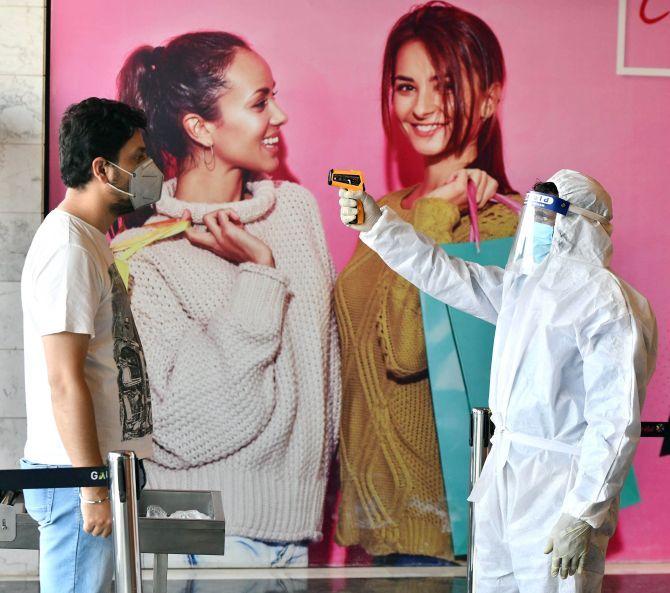Gains from the lockdown period in the battle against COVID-19 have possibly been lost in the unlock phase, a public health care expert warned on Wednesday, calling for protecting the population in rural areas ill-prepared to tackle any explosion in infection cases.

Professor, Indian Institute of Public Health, Hyderabad, Public Health Foundation of India, V Ramana Dhara, said the unlock has resulted in a return to old habits of indiscipline in physical distancing and improper mask use.
"Migrant labour has to be taken care of and quarantined close to their homes in rural areas so the rural population is protected without stigmatisation of the migrant labour. Unfortunately, there aren't enough testing and medical care facilities in the vast rural areas in the event the cases explode there," Ramana Dhara said.
On the handling of the novel coronovirus pandemic by the government in terms of lockdown and unlock now, he said the variability in the response by different states highlighted the weak public health infrastructure in the country.
" The government initially did not want to test and later had to play catch-up. Any gains from the lockdown have been possibly lost now with the unlock," claimed Ramana Dhara.
Dhara is an occupational/environmental medicine physician board-certified by the American Board of Preventive Medicine in Occupational Medicine and the American Board of Independent Medical Examiners.
The COVID-19 toll rose to 7,745 and the number of cases climbed to 2,76,583 in the country after it registered 279 fatalities and 9,985 new infections within a period of 24 hours till Wednesday 8 am, the Union health ministry said.
Asked when he expects the cases to peak in India, Ramana Dhara, the former Medical Director of the Occupational Health Clinics, Centers for Disease Control & Prevention, Atlanta, the US, said, "This is difficult to predict. We will be able to tell the peak only after we cross it."
He said India has to keep testing aggressively to know the true spread of the disease in the population, and test criteria and methodology have to be standardised all over the country.
"Syndromic surveillance should be done systematically. Areas which were previously considered recovered are now showing a rise in cases. This is being observed elsewhere in the world too," pointed out Ramana Dhara, who as a member of the International Medical Commission on Bhopal disaster, has designed and published the long-term health effects studies on the exposed community.
To a question on how India can keep the mortality low, he said it is only by vigorously doing the contact tracing, isolation of positive cases, quarantine of contacts, and keeping hospitals ready for care of the
severely affected.
"India's death rate is lower than other countries even if we consider undercounts from rural and non-hospital deaths. Our lower senior citizen fraction may also be a factor but there may be other unknown factors," Dhara said.
"India should concomitantly prevent deforestation and protect wildlife habitat so a recurrence of other epidemics does not occur," he added.











 © 2025
© 2025